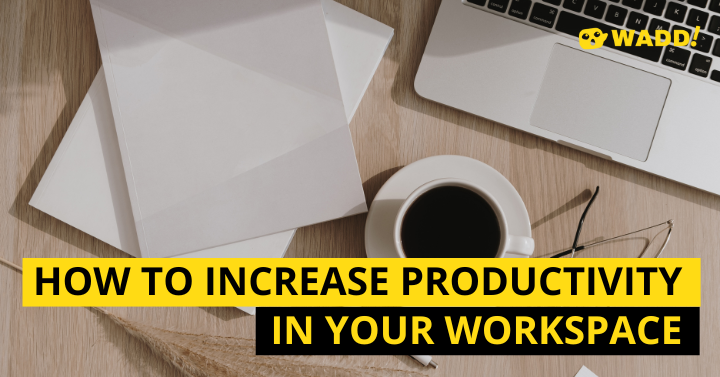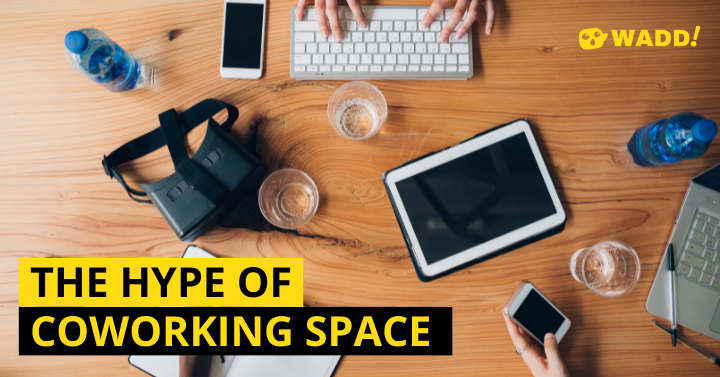It is rather peculiar that we live in a world today where information overload is an actual thing. Who would have ever thought that a day like this would come where having too much knowledge and information can be detrimental to mankind cognitively?
Today, we receive information not just when we are pursuing our studies, reading the newspaper, watching the TV, or intentionally searching on Google for information. They also come into our daily lives in the form of texts, emails, all sorts of notifications, and the endless stream of viral content. With a smartphone by our side 24/7, the information we receive can be constant and overwhelming.

The 24/7 Digitalized World We Live In. Image source via Fuyang Daily
GOING TO THE ROOTS - UNDERSTANDING THE PHENOMENON OF INFORMATION OVERLOAD
"Information overload occurs when decision-makers face a level of information that is greater than their information processing capacity." (Schroder et al. 1967; Eppler and Mengis 2004)
There is plenty of research and experiments that have been documented to show cognitive issues faced by our generation from information overload. It is of course not a phenomenon that is only happening in this age and time. For as long as people have been gathering information, there is the likelihood of an information glut. However, studies have shown that in the past, it was predominantly experienced by scholars or the elites. (Blair 2012 and Levitin 2014)
It is easy enough to understand as it was a time before the information floodgate was opened to all. With everything digitized and automated, data and content in countless formats have become available to everyone at no cost. Gone are the days of hardcopy printouts and going to the library for research. That said, people of all social ranks, both young and old, are susceptible to information overload-related problems today.
At no point in history has mankind ever experienced such a high volume of information.

Image source via Gifer
Every day is another unprecedented day of bits and bytes. Have any or can any innovations truly calculate every possible risk and come up with foolproof countermeasures against all foreseeable side effects? There are just no simple methodologies for the human brain to process, compare, and evaluate such an amount of data.
While technology has eased and sped up information acquisition, with it comes a lot more disruptions for today's generation as compared to pre-IT times. And while the Internet is of infinite abundance, the human information processing capacity is not.

Image source via Harvard Graduate School of Education
According to David Shenk's Data Smog, when the massive information "begins to cultivate stress, confusion, and even ignorance," that is when "the glut of information no longer adds to our quality of life." Only when we begin to see the undeniable ramifications of the Internet's information glut will we be able to protect ourselves from its damaging effects.
Nobel Prize-winning social scientist Herbert Simon called it "a wealth of information [which] creates a poverty of attention" (Simon 1971, pp. 40–41)

Image source via Springer Link
When our brain exceeds its cognitive capacity, it is bad news for both ourselves and the organization we work for.
HOW INFORMATION OVERLOAD BLOWBACK AT US

Image source via Cambridge Blog
Have you ever experienced any of the following symptoms?
- Brain Fog
- Loss of Focus
- Poor Judgment
- Lack of Motivation
- Exhaustion
- Procrastination
- Stress and Anxiety
- Regression in Intelligence
- A Decline in Productivity and Creativity
- Memory Impairment
If they all sound too familiar and it has been something that you have been struggling with for an extended period, you could likely be going through the damaging effects of information overload.
Many who have heard of information overload would not perceive it as a severe or worrisome matter as it is not life-threatening. However, studies have shown that it has led many to suffer in silence unknowingly, bringing about larger issues in their professional and personal lives later.
Nathan Zeldes, the President and Chairman of Information Overload Research Group (formerly an Intel senior engineer), did a study that revealed: "many companies are still in denial about the problem." He adds: "And though people suffer, they don't fight back because communication is supposed to be good for you."
OUR DIGITALIZED ENVIRONMENT

We each have 24-hour a day; being overloaded by information would also mean less time for self-care and contemplative activities such as resting, being mindful, exercising, planning, and even playing. There was a time when these healthy activities came naturally as there were less to occupy our time. Without it, our emotional, mental and physical being would gradually deteriorate. The extent information overload affects our daily lives is a steady exposition.
Information Overload at Work
In this Internet era, information overload is pretty much present across all business disciplines. Decision-makers today are facing situations whereby they receive more input than they can adequately evaluate. From social network updates to texts and emails, online industry data, blogs, forums, market research, it is a lot to study and analyze.
With the increase of information, expectations and demands have grown exponentially as well. The response time at work and for work has shifted from days to seconds. As a matter of course, it is no longer uncommon that an employee is expected to take in information outside of their expertise independently without proper tools, resources, and training. To accomplish more with less is the expected proficiency in the information age.

The intensification of expectations is both external and internal. With the world in display for comparison, the pressure from within to be better or at par increases. Whether it is to live up to what is exhibited as 'successful' on the Internet or to achieve what is flaunted by the competition, the comparison is often biased.
Those who struggle with information overload are often ambitious and highly driven individuals who are more prone to productivity shame. With information accessible anywhere and anytime, it is ordinary that one takes their work home too. It is easy to overlook the symptoms of information overload when one has no time to slow down.
Edward Hallowell (psychiatrist and expert on attention-deficit disorders) made a case that the modern workplace induces "attention deficit traits,"; and author Linda Stone coined the term "continuous partial attention" to describe the mental state of today's nonmanual workers. (Harvard Business Review)
It can be costly to disregard the harmful effects of cognitive overload because time is money in the world of business. Both individuals and companies would be paying a high price unknowingly with the loss of productive time should they continue pushing through without acknowledging the real struggle of information overload.
Information Overload Outside of Work

Image source via Daily Mail
The same dramatic shift of expectations at work applies to our personal and social life as well. Thanks to smartphones, social networks, and IoT devices, the social life we once lived has expanded from the occasional face-to-face meetups to being active and present in multiple groups online such as Whatsapp and Facebook.
Outside of work, we even do our shopping, get our news updates, stay in touch with friends and family all virtually these days, all while being exposed to more information that comes in the form of 'pop-up ads.' The amount of information our brains have to analyze and examine is simply overwhelming.
Information also comes to us regardless of its value or relevance, and it could spread like a virus. Take the spreading of false news and irrational opinions, for instance. They come to us without us looking for it in the first place. In this illustration, children and elderlies with weaker 'immune systems' would be at higher risk of being infected and have their cognitive biases compromised.
Is it not ubiquitous now to see a couple or family at a dining table all staring down at their phones? Have you ever had the experience where a question comes to mind and you are well aware that you can search it on Google, but for the sake of having a conversation, bouncing off ideas the old school way, and so you chose to verbalize them only to wind up being asked to Google it?

Our face-to-face communication and conversations do have a part to play in the upkeeping of our mental well-being as social animals.
There are reasons why concerns have been raised over the years on the detrimental effects of intensive social media use. Information comes rushing through the moment we pick up our phone. It isn't difficult to fathom how one could wind up paralyzed by information overload.
We are continuously absorbing this deluge of information without proper digestion. It is a bad diet that should not be recommended. Without recognizing it and take active actions to prevent or govern it, our bad online diet would eventually lead to overload damage.

Image source via medium.com
THE VICIOUS CYCLE OF INFORMATION GLUT

We have all at one point in our lives experienced what it is like to hit the mental wall and be at the point of burnout. Make it a habit to hit the brakes before you reach your limits and your body will surely thank you for it. Our brain is an amazing tool, but when it exceeds what it can process, there is only going downhill from there.
As soon as we recognize the detrimental effects of information overload on the quality of life and our well-being, we are one step closer to overcoming information overload in this digital age.
READ: Ways to Protect Yourself Against Information Overload Damage








